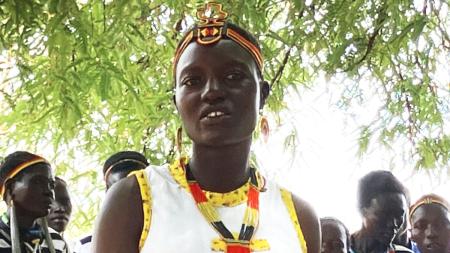Seminary Celebrates 50th Anniversary of NIV Commissioning

Zondervan
Right from the start, the Christian Reformed Church and scholars from Calvin Theological Seminary have played a key role in creating — and continuing to work on — the New International Version of the Bible, says Michael Williams, a professor of Old Testament at the seminary.
Commissioned 50 years ago at a meeting of evangelical scholars in Chicago, the NIV came out in a New Testament version in 1973 and the full Bible in 1978.
Since its release, the NIV has become the world’s most read modern-English Bible translation of the Bible with over 450 million copies distributed worldwide.
"The NIV arose out of the CRC and the CRC has been deeply involved in working on it," says Williams, secretary of the committee that meets every year to consider updates to the NIV.
“When you look at the story of the NIV, you see the story of God’s grace. You see how he uses imperfect people and ecumenical structures to accomplish his purposes.”
Calvin Seminary will be marking the 50th anniversary of the commissioning of the NIV with events on Oct. 8 and 9. The events will also celebrate this year’s release of a new edition of the NIV Zondervan Study Bible.
Doug Moo, the chair of the Committee on Bible Translation, will speak at 7 p.m. on Oct. 8 in the DeVos Auditorium at the seminary on “The NIV at 50: The Unchanging Text for a Changing World.”
Williams will give a homily at 10 a.m. on Oct. 9 in the seminary chapel. His topic will be "God's Grace, the CRC, the NIV, and Me."
Besides focusing in his talk on the ongoing involvement of seminary professors in the NIV, he will discuss the significance of the NIV and how it has helped to shape his faith.
He will also offer some history, going back to 1955 when Howard Long, a CRC layman from Seattle, Wash., first brought the idea of a new translation in contemporary English to his pastor.
"He was a Christian businessman who always wanted to share the gospel when he was out and talking with people," says Williams.
"He got to the point one time when he was sharing the King James Version of the Bible with a man, and the man burst out laughing."
The man simply found the language in the King James out of date and stilted and couldn’t listen to it with a straight face. "After this, Howard got frustrated and went back to his church," says Williams.
"He told his pastor that now that the Bible has been translated into hundreds of other languages, why can’t it be translated into everyday English."
Long's idea struggled through—and sometimes against—a classis, a synod, a study committee, an advisory committee, and a couple more synods before finally being formally commissioned at the ecumenical meeting of evangelical church leaders and scholars at Trinity Christian College in Palos Heights, Ill. in 1965.
Once the work of translation began, says Williams, several seminary professors were involved. They included, John Stek, Marten Woudstra, Andrew Bandstra, Bastiaan Van Elderen, and Martin J. Wyngaarden.
Edwin H. Palmer, a CRC pastor, was appointed executive secretary to serve the Committee on Bible Translation in 1968, but he didn’t serve as a member of the committee, says Williams.
At the recommendation of Stek, Williams was named to the Committee on Bible Translation in 2005.
The committee, says Williams, is unique. No other translation of the Bible has in place a standing committee such as this whose task it is to keep abreast of all the current changes in language usage.
"It has been a fascinating process to be there on the committee to hear and be part of the discussions. We have scholars represented from all over the world and everyone has a voice," says Williams.
The committee meets once a year and sorts through the suggested changes to the NIV that have been sent to them, Williams says.
"We might have a couple hundred proposals, but only a fraction get approved," he says. "We don't suggest changes to the text lightly. There has to be a persuasive and good rationale for a change."
Williams was part of the lengthy process that led to the publication of the 2011 NIV, a biblical text that incorporated many changes in language that had developed in previous years.
"We need to keep adjusting the language to how it is used," he said. "We have a large database of word usage that we refer to as we work."
Every year that they meet, says Williams, the committee has the same goal of working on a Bible version that is in the language of the people while remaining faithful to the original manuscripts.
"You can see the grace of God tending the work we do," he said. "You can see the church come together and cooperate in an effort that is so important."


